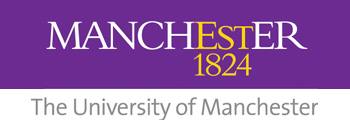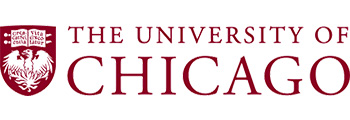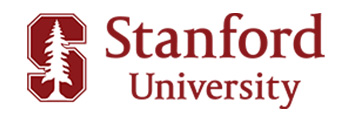PROGRAMA
Cada presentacion de póster largo toma 15 minutos y 5 minutos de preguntas.
Cada presentación de póster corto toma 10 minutos y 5 minutos de preguntas.
Wednesday 21 August |
||
|---|---|---|
Hour |
Presentation |
Authors |
| 8h00 - 8h45 | Registration and reception | |
| 8h45 - 9h00 | Inauguration of SIMBig 2019 | |
| 9h00-10h00 |
Keynote Speaker: Sophia Ananiadou

|
|
|
Title:
Text Mining for Biomedical Applications
Abstract: This talk will provide an overview of recent developments in neural information extraction at the National Centre for Text Mining to support biomedical applications. Applications range from pathway construction, database curation, semantic search and systematic review development. Two systems will be presented: a) LitPathExplorer, a visual text analytics tools that integrates advanced text mining, semi-supervised learning and interactive visualization, to facilitate the exploration and analysis of pathway models and b) RobotAnalyst, a web-based screening system combining machine learning and text mining for document prioritisation. |
||
| Session 1: Social Media and NLP | ||
| 10h00 - 10h20 | Spanish Sentiment Analysis with Universal Language Model Fine-Tuning: A detailed case of study | Daniel Palomino and Jose Eduardo Ochoa Luna |
| 10h20 - 10h40 | Coffee break | |
| 10h40 - 11h00 | Detecting Anomalies in Time-varying Media Crime News Using Tensor Decomposition | Hugo Alatrista-Salas, Juandiego Morzan, Miguel Nunez-Del-Prado, Gustavo Yamada and Pablo Lavado Padilla |
| 11h00 - 11h20 | What can we learn from tweets? A textual analysis of tweets using #bacon as inductor word | Erick Saldaña, Dominique Valentin, Jorge Behrens, Miriam Mabel Selani, Iliani Patinho and Carmen J Contreras-Castillo |
| 11h20 - 11h40 | A fuzzy linguistic approach for stakeholder prioritization | Yasiel Pérez Vera and Anié Bermudez Peña |
| 11h40 - 11h55 | Controlling Formality and Style of Machine Translation Output Using AutoML on NMTs | Varden Wang, Aditi Viswanathan, Antonina Kononova |
| 11h55 - 12h10 | Automatic Speech Recognition of Quechua Language Using HMM Toolkit | Rodolfo Zevallos, Luis Camacho and Johanna Cordova |
| 12h10 - 12h25 | Collect Ethically: Eliminate and Reduce Bias in Twitter Datasets | Lulwah Alkulaib, Abdulaziz Alhamadani, Taoran Ji and Chang-Tien Lu |
| 14h00 - 15h00 |
Keynote Speaker: Vipin Kumar

|
|
|
Title:
Big Data in Climate and Earth Sciences: Challenges and Opportunities for Data Science
Abstract: The climate and earth sciences have recently undergone a rapid transformation from a data-poor to a data-rich environment. In particular, massive amount of data about Earth and its environment is now continuously being generated by a large number of Earth observing satellites as well as physics-based earth system models running on large-scale computational platforms. These massive and information-rich datasets offer huge potential for understanding how the Earth's climate and ecosystem have been changing and how they are being impacted by humans actions. This talk will discuss various challenges involved in analyzing these massive data sets as well as opportunities they present for both advancing machine learning as well as the science of climate change in the context of monitoring the state of the tropical forests and surface water on a global scale. |
||
| Session 2: Data Mining | ||
| 15h00 - 15h20 | A Place to Go: Locating Damaged Regions after Natural Disasters through Mobile Phone Data | Galo Castillo-López, María-Belén Guaranda, Fabricio Layedra and Carmen Vaca |
| 15h20 - 15h40 | Coffee break | |
| 15h40 - 16h00 | Recurrence Plot Representation for Multivariate Time-series Analysis | Dennys Mallqui and Ricardo Fernandes |
| 16h00 - 16h20 | Privacy Preservation and Inference With Minimal Mobility Information | Miguel Nunez-Del-Prado and Julían Salas |
| 16h20 - 16h40 | A Progressive Formalization of Tacit Knowledge to Improve Semantic Expressiveness of Biodiversity Data | Andrea Corrêa Flôres Albuquerque and Jose Laurindo Campos Dos Santos |
| 16h40 - 17h00 | Big Data Recommender System for Encouraging Purchases in New Places Taking into Account Demographics | Miguel Nunez-Del-Prado, Hugo Alatrista-Salas, Ana Luna and Isaias Hoyos |
| 17h00 - 17h15 | Implementation of an indoor location system for mobile-based museum guidance | Dennis Núñez Fernández |
| 18h00 - 20h00 | Welcome Cocktail | |
Thursday 22 August |
||
|---|---|---|
Hour |
Presentation |
Authors |
| 9h00 - 10h00 |
Keynote Speaker: Ravi Kumar

|
|
| Title: Crowdsourced Geodata: Some Applications | ||
| Session 3: Machine Learning | ||
| 10h00 - 10h20 | Anomaly Detection and Levels of Automation for AI-supported system administration | Odej Kao |
| 10h20 - 10h40 | Coffee break | |
| 10h40 - 11h00 | Characterization of Salinity Impact on Synthetic Floc Strength Via Nonlinear Component Analysis | Hang Yin, Patrick Carriere, Huey Lawson, Habib Mahamadian, Zhengmao Ye |
| 11h00 - 11h20 | Global Brand Perception based on SocialPrestige, Credibility and Social Responsibility:A Clustering Approach | Rosario Medina, Alvaro Talavera, Martín Hernani, Juan Lazo and José Afonso Mazzon |
| 11h20 - 11h40 | SCUT sampling technique with classification algorithms to classify child malnutrition | Juan Baraybar-Huambo and Juan Gutierrez-Cardenas |
| 11h40 - 12h00 | Come with Me Now: New Potential Consumers Identification from CompetitorsRecurrence Plot Representation for Multivariate Time-series Analysis | Miguel Nunez-Del-Prado, Hugo Alatrista-Salas and Victoria Zevallos |
| 12h00 - 12h15 | An efficient set-based algorithm for variable streaming clustering | Isaac Campos Ardiles, Jared León Malpartida and Fernando Campos Ardiles |
| 14h00 - 15h00 |
Keynote Speaker: Michael Franklin

|
|
|
Title:
Towards a New Discipline of Data Science
Abstract: The emergence of Data Science has led to a flourishing of initiatives, centers, degrees, programs and organizational units at educational and research institutions around the world. The demand for data science know-how from students, parents, scientists and employers is strong and getting stronger. However, the interdisciplinary nature of the topic and the lack of a consensus around its definition raise challenges for its implementation in the modern university setting. Many ongoing efforts treat Data Science as simply a combination of topics from existing fields. While such an approach has obvious practical advantages, I believe that the challenges raised by Data Science imply that it should be more productively pursued as a new discipline in its own right. In this talk I will try to frame this larger question with a goal of initiating a discussion to identify the intellectual opportunities and research questions that could lie at the heart of a new discipline of Data Science. |
||
| Session 4: Semantic Web and Knowledge Bases | ||
| 15h00 - 15h20 | Using Embeddings to Predict Changes in Large Semantic Graphs | Damian Barsotti and Martin Ariel Dominguez |
| 15h20 - 15h40 | Coffee break | |
| 15h40 - 16h40 |
Keynote Speaker: Nigam Shah

|
|
|
Title:
Good machine learning for better healthcare
Abstract: We will discuss learnings from Stanford Medicine's Program for Artificial Intelligence (AI) in Healthcare, with the mission of bringing AI technologies to the clinic, safely, cost effectively and ethically. Using our experience in deploying predictive model to improve access to palliative care services, we will discuss potential solutions to issues relating to model correctness, interpretability, fairness, and equity as well as issues such as autonomy of decision making and fiduciary responsibility. Drawing on our experience in running a clinical consult service for generating evidence from the collective experience of patients, we will discuss the challenges as well as potential solutions to use aggregate patient data at the bedside. |
||
| Session 5: Biomedical Informatics | ||
| 16h40 - 17h00 | Sparse non-negative matrix factorization for retrieving genomes across metagenomes | Vincent Prost, Stéphane Gazut and Thomas Brüls |
| 17h00 - 17h20 | Linguistic Fingerprints of Pro-vaccination and Anti-vaccination Writings | Rebecca A Stachowicz |
| 17h20 - 17h35 | Comparing predictive machine learning algorithms in fit for work occupational health assessments | Moises Stevend Meza, Saul Charapaqui, Katherine Arapa and Horacio Chacón |
| 17h35 - 17h50 | Tensorflow for Doctors | Isha Agarwal, Rajkumar Kolakaluri, Michael Dorin and Mario Chong |
| 17h50 - 18h05 | Detection of NSCLC adenocarcinoma using supervised machine learning algorithms applicated to metabolomic profiles | Paulo Vela-Anton and Diego Rondon-Soto |
| 19h30 | Gala Diner | |
Friday 23 August |
||
|---|---|---|
Hour |
Presentation |
Authors |
| Session 6: Data-driven Software Engineering | Chair: Miguel Nuñez del Prado / Ana Luna | |
| 9h30 - 10h00 | An Industry Perspective on Data-Driven Software Engineering | Ludmer Arcaya - Avantica |
| 10h00 - 10h20 | Design of cognitive tutor to diagnose the types of intelligence in students from 3 to 5 years of preschool | Flor De Maria Olivares Ramos |
| 10h20 - 10h40 | Fake News in Spanish: Towards the building of a Corpus based on Twitter | Braulio Andres Soncco Pimentel and Roxana Portugal |
| 10h40 - 11h00 | Coffee break | |
| 11h00 - 11h20 | Big Data Use Case: Luca Transit | Lourdes Guiulfo (Telefónica) |
| 11h20 - 11h40 | Development of a hand gesture based control interface using Deep Learning | Dennis Núñez Fernández |
| 11h40 - 12h00 | Chronic Pain Estimation Through Deep Facial Descriptors Analysis | Manasses Antoni Mauricio Condori, Jonathan David Peña Andagua,
Erwin Junger Dianderas Caut, Leonidas Mauricio Condori, Jose Carlos Díaz Rosado and Antonio Manuel Moran Cárdenas |
| 12h00 - 12h15 | Recognition of the image of a person's silhouette, based on Viola-Jones | Washington Garcia Quilachamin, Luzmila Pro Concepción and Jorge Herrera - Tapia |
| 12h15 - 12h30 | Super Resolution approach using Generative Adversarial Network models for improving Satellite Image Resolution | Ferdinand Pineda, Victor Ayma, Robert Aduviri and César Beltrán |
| 12h30 - 12h45 | Peruvian sign language recognition using a hybrid deep neural network | Yuri Vladimir Huallpa Vargas, Naysha Naydu Diaz Ccasa and Lauro Enciso Rodas |
| 12h45 - 13h00 | Cloture | |


